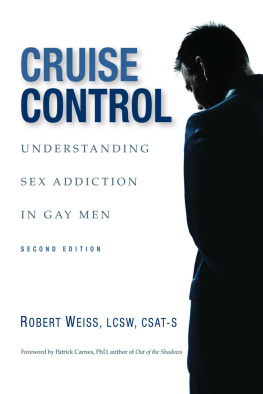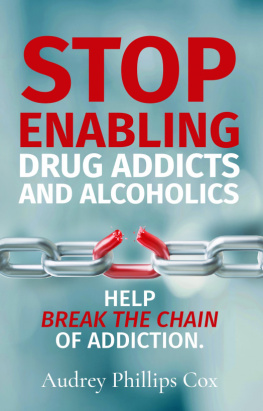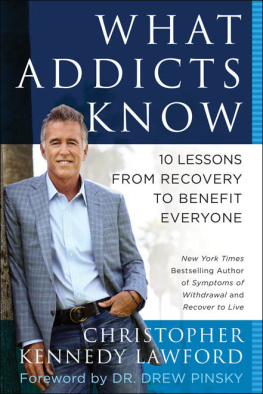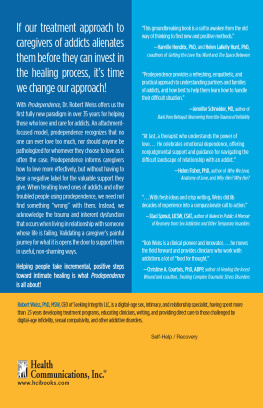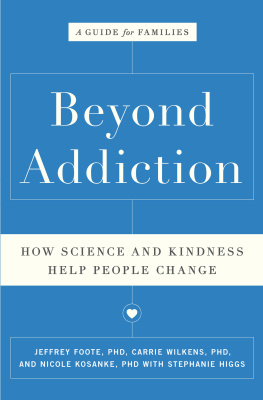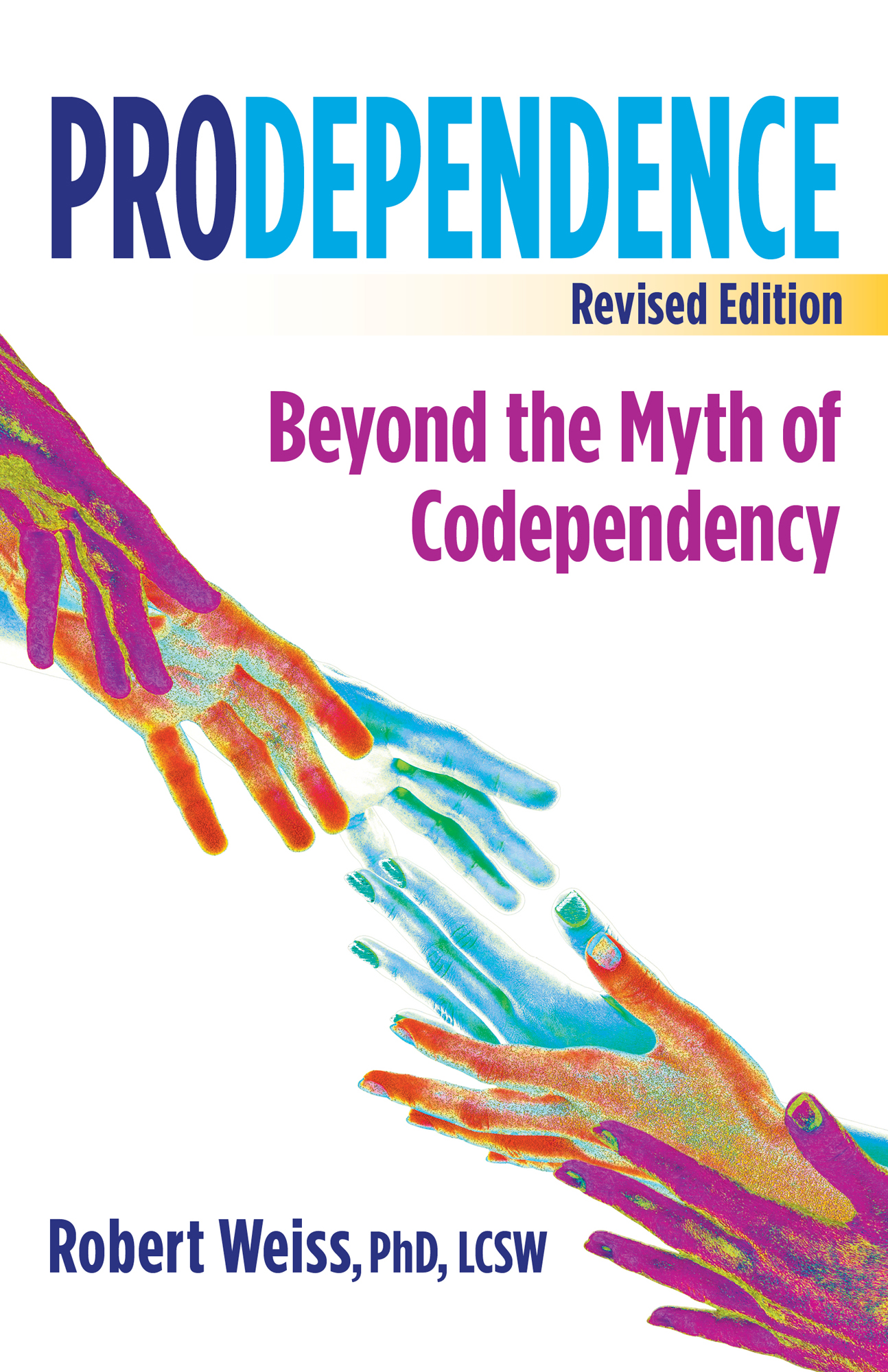Contents
Guide
Prodependence
Revised Edition
Beyond the Myth of Codependency
Robert Weiss, PhD, LCSW
Praise for Prodependence
Removing codependence from the list of diseases that afflict humankind and seeing the cause as a response to overwhelming life conditions rehumanizes those who sufferboth addicts and those who love them. This approach rightly acknowledges them as co-participants in the human journey rather than objects of analysis and treatment. In Prodependence, Robert Weiss has not only created a new term but has also boldly challenged the cultural practice of negatively labeling those in service to others. He shows that by doing so, we devalue their selfless efforts and amplify their suffering. This groundbreaking book is a call to awaken from the old way of thinking to find new and positive methods. We recommend it to all mental health providers and to those whose mental health will improve by reading it.
Harville Hendrix, PhD, and Helen LaKelly Hunt, PhD, coauthors of Getting the Love You Want and The Space Between
At last, a therapist who understands the power of love. Bravo, Robert Weiss! Rather than judging the caregivers of addicts as codependents with pathologies of their own, Weiss recognizes them as normal, mentally healthy men and women with a deep and unconditional love for their addicted partner or family member. He celebrates emotional dependence, offering nonjudgmental support and guidance for navigating the difficult landscape of relationship with an addict. By coming from a positive perspective, his concepts offer hope instead of despair for those living in crisis. And as a bonus, its a fascinating read about the evolution of the recovery movement, and the importance of human kindness and connection in healing.
Helen Fisher, PhD, bestselling author of Why We Love, Anatomy of Love, and Why Him? Why Her?
Rob Weiss is a clinical pioneer and innovator. In Prodependence, he takes issue with the codependence model and replaces it with an attachment-based perspective that is less pathologizing and stigmatizing of an individual or a familys love for an addicted relative. Weiss work and speculation based on his clinical experience moves the field forward and provides clinicians who work with addictions a lot of food for thought.
Christine A. Courtois, PhD, ABPP, author of Healing the Incest Wound and Treating Complex Traumatic Stress Disorders (co-authored with Dr. Julian Ford)
Prodependence provides a refreshing, empathetic, and practical approach to understanding partners and families of addicts, and how best to help them learn how to handle their difficult situation. Avoiding the classic split between the trauma and codependency models, Weiss uses the framework of attachment theory to avoid blaming or pathologizing their behavior. Instead, he validates and reframes their efforts and provides techniques to help them heal, improve their self-care, set appropriate boundaries for their own behavior, and deal with their challenges. This beautifully written book is must-reading for all those who love an addict, as well as all mental health professionals.
Jennifer Schneider, MD, author of Back from Betrayal: Recovering from the Trauma of Infidelity
This book is dedicated to the memory of my mother, Elizabeth Weiss, a woman who struggled all her life (and mine) with profound bipolar disorder, unrelenting narcissism, paranoia, and psychosis. She was a brilliant mind, but also one too deeply scarred by mental illness for her to ever reach her potential as a woman, as a thinker, and as a mother. Perhaps due to her deficits, she was my greatest and longest-running prodependence teacher. This is true despite forty-five years of illness, hospitals, emergency rooms, abuse, detachment, enabling, caregiving, rescuing, and broken promises on both sides. This is true despite our many related emotional struggles, some of which still haunt me to this day. And this is true despite all the needed therapy, personal growth, addictions, and losses stemming from that deeply flawed mother/son relationship.
You see, no matter what any therapist, support group or anyone else ever reflected to me, that troubled woman will always be my mom. And I, her son. And within that structure, we both did our broken best to love one another through to the end. Thus Im grateful to have been the one whispering words of peace to her in her last moments. Sadly, due to mental illness, my mother lacked both the tools and the resilience to thrive and enjoy her life (and those of her children). And yet, despite all her deficits and challenges, this woman managed to offer me just enough to be able to survive until I could find my own path to move from surviving to thriving. Thank you, Mom. This ones for you.
Acknowledgments
P rodependence is a new concept, but there are many people whose ideas, beliefs, and personal and professional support led to the writing and release of this book. In recognition of this, I wish to acknowledge the following individuals:
- First and foremost, love and thanks to my husband of twenty-plus years, Jonathan Michael Westerman, who is my rock and personal guide to all things prodependent.
- Claudia Black, Melody Beattie, Pia Mellody, Robin Norwood, and all the other progenitors of the codependency field. My deep thanks to you for helping so many people and for laying out a strong-enough path for me to humbly follow in your footsteps.
- Dr. Carol Clark, Charlie Risien, Keith Arnold, Cheryl Brown, Karen Brownd, Dr. David Fawcett (and anyone that I sadly forgot to mention). Thank you for your help with this book (and your involvement in my PhD). Youve helped Dr. Rob become a reality. And I never saw that coming!
- My work team: Scott Brassart, Stuart Leviton, Karen Brownd, Dr. David Fawcett, and Tami VerHelst. Where would I be without you? I am forever grateful for your teaching me how real support feels. Thank you one and all.
- HCI books. For your encouragement and brilliant insights, especially my amazing editor Christine Belleris and CEO Christian Blonshine.
Lastly and most importantly, as a psychotherapist and author, my thanks to the thousands of addicts and those who love them who have shared their pain, their triumphs, and lives with me throughout the many decades of my own recovery and clinical care. My commitment to you hereas alwaysis to reduce the stigma of addiction while offering a kinder, strength-based path toward healing.
Preface
This is Abstract, which I now publish, must necessarily be imperfect and I must trust to the reader reposing some confidence in my accuracy. No doubt errors will have crept in, though I hope I have always been cautious in trusting to good authorities alone. I can here give only the general conclusions at which I have arrived, with a few facts in illustration, but which, I hope, in most cases will suffice. No one can feel more sensible than I do of the necessity of hereafter publishing in detail all the facts, with references, on which my conclusions have been grounded; and I hope in a future work to do this.
Charles Darwin, The Origin of Species
I n 1909, Charles Darwin published his now-acknowledged masterwork, The Origin of Species, with an introduction (excerpted above) stating that his book was, more than anything else, his opinion, with that opinion based primarily on his experience and observations as a naturalist, geologist, and biologist. He hoped that his theories would be received and investigated by other scientists with an open mind. At the same time, he knew that his ideas were likely to be met with resistance on many fronts.


